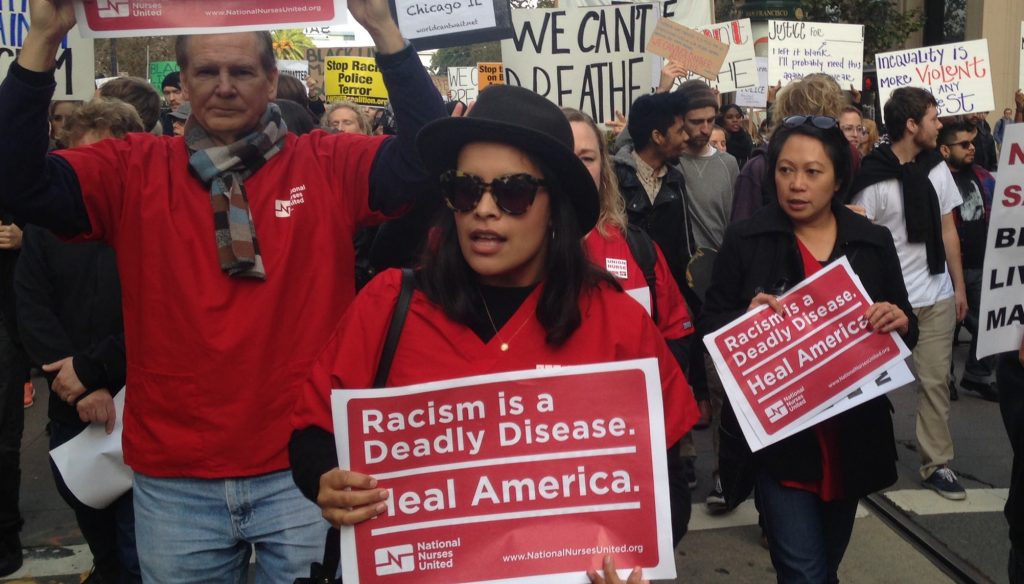In this time of fake news and alternative facts coming from the White House as well as some media, what can we as scholars contribute to challenge this?
In this time of amplified racist hate and violence, whether it is anti-Black, anti-Muslim, or directed at any group, what can we as scholars contribute to challenge this?
In this time of newly public white supremacy in the USA, what can we as scholars contribute to challenge this?
Today, Monday, September 18, 2017 is devoted to Understanding Race After Charlottesville. Four professional organizations—the American Anthropological Association, the American Historical Association, the American Sociological Association, and the Society for Applied Anthropology—are each encouraging and holding events leading up to and following after this day. Here at Anthrodendum, we are collecting resources from this event to share, as well as offering others relevant in this political moment. Since the 2016 presidential campaign, anthropologists have been busy trying to interpret where we are and how we got here—and collectively thinking about how to research, write, and teach in this moment.
Below are resources associated with Understanding Race After Charlottesville, as well as beyond. Please feel free to share additional resources in the comments section:
American Anthropological Association webpage for Understanding Race After Charlottesville
American Historical Association webpage for Understanding Race After Charlottesville
American Sociological Association webpage for Understanding Race After Charlottesville
Brexit, Trump, and Anthropology forum (American Ethnologist). Edited by Shanti Parikh, Angelique Haugerud, and Jeannette Edwards, with articles from Hugh Gusterson, Jonathan Rosa and Yarimar Bonilla, Carole McGranahan, and Christine J. Walley.
#BlackLivesMatter: Anti-Black Racism, Police Violence, and Resistance forum (Cultural Anthropology). Edited by Bianca C. Williams with essays by Joy James, Aimee Meredith Cox, Matt Richardson, Christen Smith, Dylan Kerrigan, Joao Vargas, Orisanmi Burton, Michelle Stewart, and Alisse Waterston.
The Rise of Trumpism forum (Cultural Anthropology). Edited by Lucas Bessire and David Bond with essays from Judith Butler, Michael M.J. Fischer, Faye Ginsburg, Susan Harding, Brandi Janssen, Doug Kiel, Micaela di Leonardo, Amy Moran-Thomas, Harald E.L. Prins, Laurence Ralph, Ritchie Savage, Jessica Smith, Ann Laura Stoler, Michael Taussig, Christine J. Walley.
From Candidacy to Governance: Rethinking “The Hands of Donald Trump” forum (HAU: Journal of Ethnographic Theory). Edited by Donna Goldstein and Kira Hall, with contributions from Michael Silverstein, Stefka Hristova, Norma Mendoza-Denton, Jeff Maskovsky, L. Kaifa Roland, and Nancy Scheper-Hughes.
Teaching materials from Anthrodendum’s #teachthedisaster series:
#teachingthedisaster (by Zoe Wool)
Teach America Great Again (by Rucha Ambikar)
Teaching the Anthropology of Elections in Times of Trump (by Maria L. Vidart-Delgado)
Race, Black Lives Matter, Standing Rock, Trump, Prison Abolition, Welfare Reform, Pulse Orlando: #Teachingthedisaster Through Crowdsourced Syllabi (by Carole McGranahan)
Rethinking Pedagogy of Race in Anthropology, Part I (by Takami Delisle)
Rethinking Pedagogy of Race in Anthropology, Part II (by Takami Delisle)
